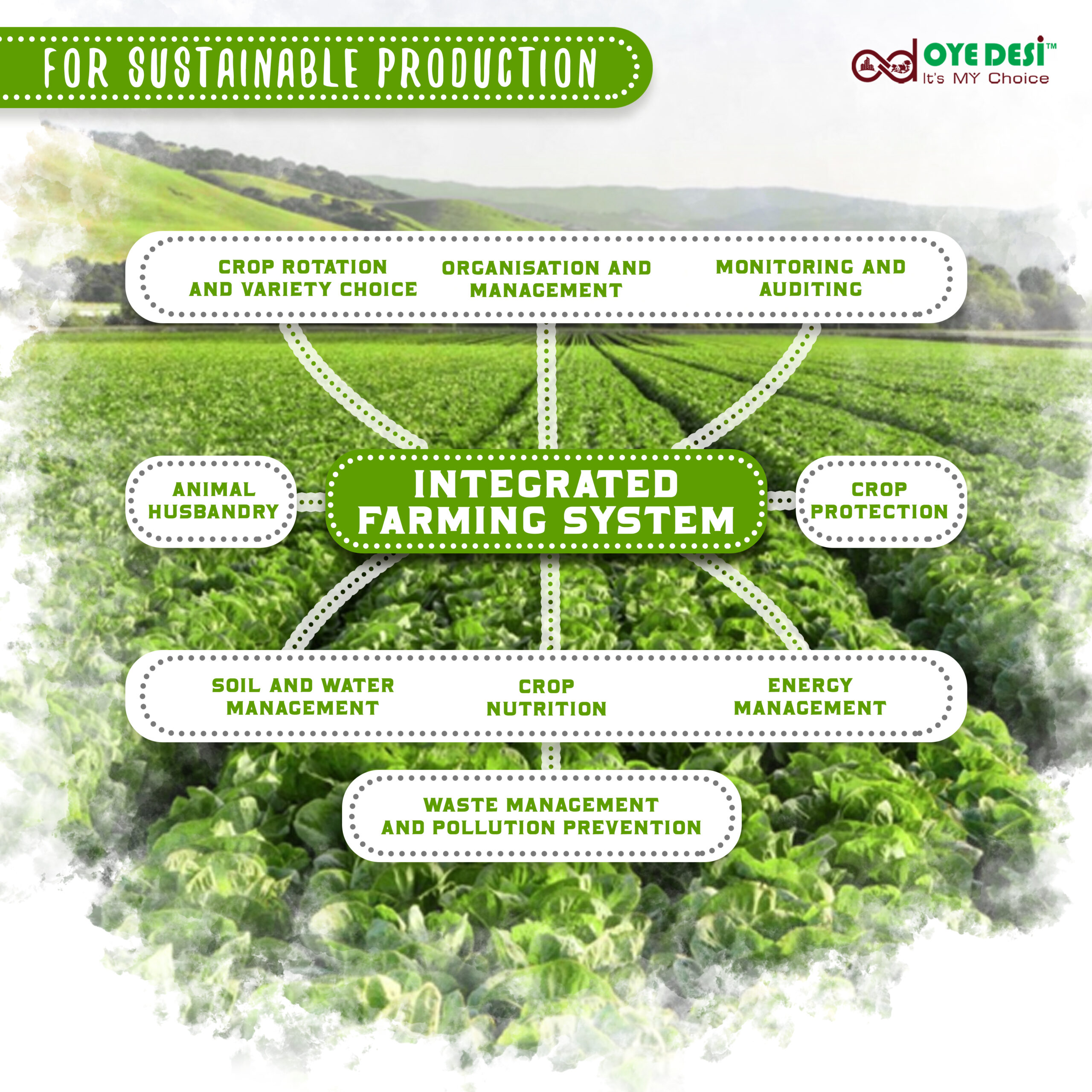IFS is a combination of several systems that aims to boost farmers’ income by utilizing natural resources in a sustainable manner, which can be achieved by integrating crop husbandry with related companies. It is also known as biologically integrated farming system, which incorporates natural resources and regulatory systems into farming activities to achieve optimum off-farm input substitution and ensures the production of high-quality food on a long-term basis. Sustain farm income by using environmentally preferable technologies to produce food and other things removes or decreases the sources of current agricultural pollution in the environment maintains agriculture’s various functions.
Objectives of IFS
- Efficient recycling of farm and animal wastes
- Minimizing the nutrient losses
- Maximizing nutrient use efficiency
- Adoption of efficient cropping systems and crop rotations
- Complementary combination of farm enterprises
Types Enterprise relationships
- Independent enterprise: These enterprises do not have direct bearing on each Other. There is no effect on the other enterprise when level of one enterprise is Increased or decreased.
- Complementary businesses: These are businesses that work together to produce goods and do not compete for resources.
- Competitive enterprises: Are ones that compete for resources with one another.
- Supplementary enterprises: These are businesses that do not compete for resources but rather help farmers earn more money.
Advantages of Integrated Farming System (IFS)
- Productivity
- Profitability
- Sustainability
- Balanced food
- Environmental safety
- Recycling of waste
- Saving energy
- Adoption of New Technology
- Money Round the year
- Availability of fodder, fuel and timber
- Employment round the year
- Agro-industries
- Increases input efficiency
- Standard of living
- Avoid degradation of forest etc.



